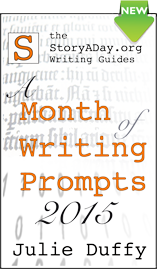Inspiration for this prompt came from the very wonderful How To Be A Writer by Barbara Baig, which I’ve only just started reading, but which echoes what I’ve been saying here for years (so naturally, I think she’s a genius!)
Not everything you write should be written with a view to showing it to anyone else.
Just as you would practice the piano in private for months or years before hoping to be able to bring any pleasure to a listener, writers must practice their craft too…sometimes in private.
The Prompt
Write A Story That Is You Will Never Show To Anyone
Tips
- Don’t cheat and tell yourself that something magical is bound to happen and that you’ll end up writing a story so good that you’ll feel compelled to show it to people. Promise you will not show it to anyone and stick to that.
- If you’re having trouble coming up with something to write about, dive into your stash of Story Sparks (you have been collecting them, haven’t you?)
- If you haven’t been collecting Story Sparks out in the real world, take ten minutes right now and look deep inside yourself. What news story annoyed you this week? Which political candidate do you despise the most? Why? What did you see that was beautiful, recently? What is your strongest memory of your mother? Why? What did summer smell like when you were growing up? Who do you miss? What’s your favorite swear word? What frightened you when you were a child? What frightens you now?
- Make a quick list of 30 Story Sparks. (If you don’t know what I mean by story sparks read this article)
Continue reading “[Write On Wednesday] Write A Secret Story”













 About Joe R. Lansdale
About Joe R. Lansdale


